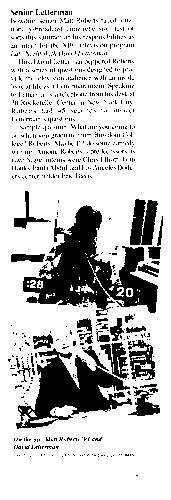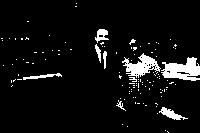
Matt Roberts ’93 and Hari Kondabolu ’04 on the set of “The Late Show with David Letterman,” Monday March 16, 2015.
Photo: Jeffrey R. Staab/CBS ©2015 CBS Broadcasting Inc. All Rights Reserved.
As comedy writer Matt Roberts ’93 prepares for his next step after his gig for the last twenty-two years, Late Show with David Letterman, comes to an end, he talks with another funny guy, stand-up comedian Hari Kondabolu ’04, about career paths, college radio, and joking on Twitter.
Photographs by Jeffrey R. Staab and Bud Glick
An abridged version of this interview appeared in the print edition of Bowdoin Magazine, Spring/Summer 2015.
Hari Kondabolu: Were you doing comedy or writing comedy at Bowdoin?
Matt Roberts: For me, the big outlet for creating things and doing comedy was WBOR.
HK: I did WBOR.
MR: Did you have a show?
HK: Yeah, I was the music director and I had shows every semester—mostly indie rock.
MR: I did that as well. I was the station manager, actually.
HK: Oh man, this is great. I didn’t know we had [that in common].
MR: I remember the day “Smells Like Teen Spirit” showed up on vinyl, and no one had heard it before. We put it on and were just blasting it.
HK: You weren’t there when carts were being made? (Editor: “Carts” refers to NAB cartridges used by radio stations for music, commercials, etc.)
MR: That’s what I would do in the production studio.
HK: You made the carts?
MR: Well I don’t know if I made the carts. I made carts.
HK: But you don’t remember any of the ones…
MR: Oh, I remember all of them.
HK: used to play those on my show as interstitials.
MR: This will do them no good for a print publication but we would write jingles all the time, “I love WBOR. I think they’re the best. I love WBOR. They play my requests. 7-2-5, 3-2-5- and a big fat 0 on the end of that.” (Editor: That was WBOR’s phone number, 725-3250.) Yeah. We would do hours of these like radio plays, like little – I mean radio plays, like 30-second things or a minute-long things. There was something where somebody’s calling in and requesting Paula Abdul and we say, “We don’t play Paula Abdul on WBOR,” and some whole thing where you heard like a riot forming outside the window. The window goes open and you hear over a bullhorn like, “Listen, you must disperse immediately. We’re not playing Paula Abdul on WBOR.” It was just really ridiculous stuff like that.
HK: Those carts were amazing. I wonder if they even have the technology anymore to play those carts.
MR: I mean they were basically eight-tracks so I don’t know if anybody wants to have the technology.
HK: I loved it because I realize remembering that they were a little dated by the time we got them but nobody else had updated them. There were no new ones. That’s all we had; they were amazing.
The experience here [at Late Show] with all these incredibly talented performers—it’s as good as it gets. And the experience I had at WBOR with my close friends was also as good as it gets.
MR: I had friends who would make them with me. We were just pouring ourselves into these things, and then we’d do our show and have this whole collection of things to intersperse between songs. It was really satisfying.
HK: For me [WBOR] was an opportunity to just say whatever I wanted. I used to call the music “the song breaks.” It was a music show, but I talked so much I came up with all sorts of ideas on-air—incredible experience.
MR: There’s something about being live. You didn’t have to pretend you were doing something people were listening to; you could actually know you were doing something people were listening to.
HK: Did you do comedy in any other way?
MR: That was really it.
I guess it’s funny to me at times how I would find myself working on a piece for the [Letterman] show—like a musical number for Martin Short or Nathan Lane—and I’d be collaborating with our director and other writers and the scenic people and the graphics people and Paul Shaffer and the band, and Dave of course is contributing his thoughts—it’s a big collaborative effort, and I would just think, “Oh, this is like WBOR with cameras and a big budget,” because the spirit of it was exactly the same. That goodness is equal in my eyes. The experience here [at Late Show] with all these incredibly talented performers—it’s as good as it gets. And the experience I had at WBOR with my close friends was also as good as it gets. They were both fully immersive, creative experiences, which I loved.
HK: When you graduated did you have any more formal training with writing or were you making things that were similar to what you were making at BOR? How did you continue? What is the link between there and where you are now?
MR: There was a drop off for a few years but because I came to New York and I started at the show working at the ticket office. . .
HK: So your first job out of college was. . .
MR: Here.
HK: Oh, my God.
MR: Yeah.
HK: So you’ve only worked at one place.
MR: That’s right. I’m going to be working somewhere else in ten weeks though, hopefully! I don’t know where that is yet so you can imagine how that feels.
HK: Yeah, this has been home for a very long time.
MR: I was an intern in ’92 between my junior and senior years. I graduated from Bowdoin and moved to New York City with no reason to believe [Late Show] would hire me, but thankfully they did by August. I was here for two, three months, completely running out of money. I was paying $600 or $700 a month rent, thinking, “Oh, this is interesting! I don’t have enough money to pay for another month’s rent.”
HK: I got mesmerized by you saying “$600 or $700 a month rent.” What?
MR: Yeah, $600 or $700 a month. At any rate, I got very lucky, and they hired me for a job in the ticket office, and I did that for nine months, and then a research position opened, and I applied for that and became a researcher—researching guests on the show—and then, after a couple of years, a guest segment producer position opened up, and I moved into that job and that’s when I kind of got to engage with guests. Because you don’t really write material for guests, but you do help them sculpt anecdotes and experiences. You’re only going to have six or seven minutes on the show and you want to cover a bunch of things, so you’ll have a conversation, and you say, “Oh, we might talk about this, or this,” so that by the time they get out there to talk to Dave, he could ask them anything, but it’s likely they have some idea of where the conversation will go.
HK: Right, there are fewer “ums” and “likes.” They have a rough script of their story.
MR: Exactly, but then there are some [guests] who want help with material. I started contributing in that way, and it actually turned out that one day I got a call. I had worked with Nathan Lane on his segment here. He’s always super funny and a funny writer, in addition to being a talented and funny performer. So he would write a lot of stuff, and then I would once in a while throw out a, “Oh yeah, and how about this?” or “What about this?” And he liked it.
After his appearance, I got a call, “Matt, it’s Nathan. I want to hire you to write jokes for me for this benefit I’m doing,” and I said, “Oh, you know I’m not a writer. I’m just a segment producer,” and he’s like, “What are you talking about? This is Matt Roberts [who] I worked with like two weeks ago, right?” and I said, “Yeah, but I don’t write jokes.” He said, “Look, this is how it’s gonna work. You’re gonna write jokes, I’m going to pay you, and that’s all there is to it.”
HK: You stumbled into this.
MR: Well, I didn’t stumble. He dragged me into it, and then he continued to be supportive and encouraging, and when he hosted the Tony Awards he asked me to write for him. He was one of the most important people at the beginning, after Dave, to give me a nudge in that direction.
HK: Did they know that you were writing jokes for him while you were working here in a different capacity?
MR: Oh yeah, this was all above board.
HK: Not in that way but I mean in a, “Whoa, I didn’t know he was a writer…”
MR: You know it’s one of those things—don’t necessarily think about the way the person before you did the job, but bring your strengths to the job and kind of mold it so it’s the best job for you. My focus was much more on the writing and comedic part—not to say that’s the best way, but it was the best way for me.
“Look, this is how it’s gonna work. You’re gonna write jokes, I’m going to pay you, and that’s all there is to it.”
It ended up being a great opportunity, in addition to leading to me becoming a writer on the show. It gave me the opportunity to work not only with Nathan but Martin Short, Ben Stiller, Andrea Martin, Sean Hayes—all these really talented, funny performers. That was the oddly circuitous route I took to becoming a writer.
HK: And then from the writer’s room, part of it is hanging in there long enough and then slowly moving up, too, isn’t it?
MR: Yeah, pretty much. There’s not really a hierarchy among the writers. That feels like an odd thing to say when one’s title is head writer, but I really do feel the approach is collaborative.
But, no, there’s not really a ladder among the writers. When you’ve got a show every day, all you think about is, “What are we going to do to make tomorrow’s show funny?” And you don’t have time to say, “Well, let’s start with our top writer and then move down.” We’re all in at this point—it’s all hands on deck.
HK: Right.
MR: Everybody is just trying to come up with a funny idea.
HK: And at this point, how much of it is coordinating assignments and taking jokes and sculpting it into [Dave’s] monologue?
MR: The head writer’s job is largely being a managing editor. I still write pieces and certainly do a lot of—for lack of a better term—editing, tweaking things based on uninteresting, small reasons.
HK: Can you define what a Letterman joke is to you? How do you know it’s a joke that Dave will say? I mean there are certain things that won’t make sense coming out of his mouth, I imagine. So how do you define who he is, define your audience, and define a joke he would tell?
MR: Very good question. I think if you ask anybody who’s worked here twenty or thirty years—and that’s actually a large group of people; I’m like a short-timer at twenty-two years—as much as we wish there was like a rule book a Strunk and White kind of manual of Dave Letterman standards—it’s not that easy. You know certain references that aren’t Dave. For example, the world of fashion isn’t something Dave cares deeply about, so you’re probably not going to go up to him with jokes about Diane von Furstenberg.
The rule that I tend to hear the most from him is, “Does it make you laugh?” There are certain sensitivities about various things, but at the end of the day that’s what we’re all looking for.
HK: Right. He’s not going to be competing with Fashion Police.
Sometimes he gets political. When he does, does he choose those moments? Does it have to be something personal? Do you pitch it and he goes for it? Is it just the strongest joke, or does that really come from him?
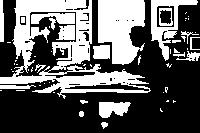 MR: No, the rule that I tend to hear the most from him is, “Does it make you laugh?” There are certain sensitivities about various things, but at the end of the day that’s what we’re all looking for. So if it makes us laugh, that’s kind of our guiding principle.
MR: No, the rule that I tend to hear the most from him is, “Does it make you laugh?” There are certain sensitivities about various things, but at the end of the day that’s what we’re all looking for. So if it makes us laugh, that’s kind of our guiding principle.
[Perhaps] not much of an answer, because one would think “Yeah, you’re working in comedy, so that seems like step one,” but I think the reason that works is because we’ve all worked together for so long. We’re here because we appreciate and hopefully share Dave’s sensibility in a lot of ways, and in some ways we’re all—for lack of a better term —proxies for Dave, [experiencing] the world, watching the news, absorbing and then presenting our versions to him that are hopefully simpatico with his point of view. And then of course he’ll take it and make it his own.
HK: So you’re not always worrying about every word you write sounding like Dave. You just need to give him enough so he can mold it from there.
MR: No, I would say you want him—because part of selling the joke is when he hears or reads the joke—to be able to imagine it coming out of his mouth. I think the diction and the vocabulary and everything, you want it to sound like him. An idea alone isn’t enough. But, that said, he rewrites a lot. So the jokes—every joke he tells in the monologue—have been shaved and honed and kind of tested in various ways to his own ear.
HK: Have you ever tried to convince him if you’ve really felt strongly about a joke?
MR: Oh, sure, and I think he wants that. I think he appreciates that.
HK: Really? I mean, not the argument but the willingness to engage like, “I really think you should think about this again?”
MR: Sure. We discuss comedy all the time. If he doesn’t think something’s funny, then you don’t really want to talk him into doing it because he’s going to be presenting it. So to try to twist his arm to tell a joke that he doesn’t find funny is not something I tend to do.
HK: Right, right.
MR: I was going to say it’s sort of a taste issue but that’s rarely [it]. I guess sometimes it comes up; more so in the way, “We know what the joke is but could somebody misinterpret it to think we’re making a different joke?” Sometimes it can be such a challenge to make a joke.
HK: Like intentional double meaning versus I got the laugh but not on my terms and not the choice I’ve made.
MR: Exactly, and if you want to make a joke smart so that you’re not just walking people right up to the punch line then you’re also leaving the possibility that someone might write a punch line that isn’t the one you have in your head. So sometimes there are discussions more about delivery methods, “How is this clear; does there need to be less of a set up?”
HK: I wrote on a show called Totally Biased with W. Kamau Bell for a year-and-a-half, and it was hard because I had never been a writer. I had always been a stand-up. I just hated the idea of all these jokes existing and not being used.
MR: Oh, yeah.
HK: It felt so wasteful, like we were wasting ideas. That’s such a waste and it would drive me nuts. Do you ever that like, “This is a great joke. Somebody, anybody, do something with it?”
But you can’t use it because you’re not doing stand up so it’s not like you’re going on stage. I’m like, “This is going to live. This will not die in this room.”
MR: What a sordid person I would be if I took all of the unused jokes from my writers and then was sneaking out at night to a stand-up club and I’m like, “I’m hilarious. Look at all this fresh material.”
HK: Or creating an alternate Late Show on public access that has all the jokes that didn’t make it.
How much are you thinking about the Internet, because I feel like for Kimmel or something like that, they were the first to really embrace “this is going to go viral,” making videos that will go online, partly because when you’re trailing you have to be more innovative. How do you gain more audience share? With this show, has that ever been a discussion?
MR: Dave’s played with Twitter on the show. Dave uses all sorts of technology—he’s not a Luddite—but at the same time he’s not going home at night spending four hours on Twitter either.
You know the thing about this show has always been, “Well, we have a show, let’s just do things on the show. We have an hour of network airtime every night. Let’s just focus on that.”
I guess in a way that’s been the approach we’ve taken to social media. I think we have a great website. We’ve got these great web producers who do a really nice job archiving “Top 10” lists. They do highlights of the show every night. It’s nicely done—and they do produce new material for the website. But from a show standpoint it’s been, “What are people going to like when they watch the show at home?” That’s sort of a pre-Internet mindset, but the fact of the matter is we’re a pre-Internet show. This show is very much “of television.”
HK: It’s [filmed in] the Ed Sullivan Theater.
MR: Yes, it’s David Letterman, who, as many of us did, grew up inspired by Johnny Carson. [Letterman], in addition to being extremely funny, is a broadcaster at heart and respects the tradition of broadcasting and being on-air. That’s not to say that Jimmy Kimmel or Jimmy Fallon aren’t “of television,” but they’re of a generation that is of multiple screens.
HK: Right, at the same time.
MR: You know, when I was at Bowdoin we didn’t have cell phones.
HK: Right, me neither, ’til the end.
MR: When I was at Bowdoin, we didn’t have email. How about that?
HK: I can’t top that.
MR: That was the mid-’90s, but I still feel like I’m “of television” much more than I am “of social media.” It’s such a weird dividing line, but it feels like these people so integrating themselves with the Internet, it’s more organic for them because I think that’s something that’s always been a part of their experience.
How do you feel about Tweeting? Do you Tweet jokes?
HK: I was going to ask you the same question, because for me it serves a purpose in that it lets me have instant gratification, which drove me to this stupid career to begin with, right?
MR: Right.
HK (@harikondabolu): At the same time I don’t write jokes that are short. Once I developed what my voice is, they end up being long; they’re stories with jokes, and they’re all mixed together. And so it changes my writing process, and I’m writing a joke that might be funny, but it’s not me, and I’ve lost me, because I’m worried about the Twitter audience, which isn’t real, really. I mean it’s not that it’s not real, but I’m a stand-up comedian. And so for me, I feel like it’s hurt my writing to some degree.
MR (@mfcroberts): Interesting.
HK: And I also think sometimes the joke is dumb. That joke should’ve been on a notepad or it should’ve been on a computer screen or something that I’m working on and open mic-ing, and I forget that I write it because I got the instant gratification of some random number next to it. Do your writers Tweet, or do you encourage them not to because it wastes jokes they could be using on the show?
MR: We don’t tell people what they can or can’t do in that way creatively. For me personally, I sort of feel like it’s giving away the store.
HK: I think, “Why am I doing this?”
I was completely stunned, as was everybody.
MR: I guess the only time I do it is like watching the Oscars. Sometimes it’s fun to do things that are just completely in the moment. It’s almost a race. “Oh, my gosh, wait, I have to make this joke before the other ten million people make this joke.” It’s speed comedy.
HK: Yes.
MR: But it is very much like the white sugar of comedy. You get a fast rush, and then afterwards you kind of go like, “Uh, I don’t know. Do I…?”
HK: Where does this get me?
MR: Yeah.
HK: Did you know Dave was going to retire? Did you see it coming?
MR: No, I was completely stunned, as was everybody. One day, sometime around a year ago, this phone call came, “Dave wants to talk to you and a whole assortment of people in his dressing room.” And that is not a typical thing to happen right before a show.
So, at that moment I thought, “Well that must be what this is.” I guess I always just thought—any time you would’ve asked me, I would’ve said, “Oh, we’re going to go a few more years,” because that’s just what I’ve always thought, going back to 1993. So no, it was a shock. It was kind of all sorts of feelings. On the one hand, there’s a huge amount of sadness, of course, that it’s all coming to an end. I’ve been with these people probably more than any other people in my entire life, including my family, twenty-two years with a lot of the same people for eight-, ten-, twelve-hour days, so a huge amount of sadness.
I’ve been with these people probably more than any other people in my entire life, including my family, twenty-two years with a lot of the same people for eight-, ten-, twelve-hour days.
But then it’s tempered somewhat—I mean, I did know that I wasn’t going to work at this show my whole life, and I also knew I probably wasn’t going to leave the show for all the reasons I just described. It would feel so odd to leave a place that is a) my dream job; b) this incredible, creative opportunity; c) working alongside the guy I watched on television since I was eleven years old. The idea that I would walk away from it seemed unlikely. So, as sad as it all is, it’s tempered over time to be also an exciting restart.
It’s been twenty-two years that I’ve been coming to this building. When you do something like that, you start to realize there are other buildings that you can work in and other creative opportunities.
HK: What have you imagined?
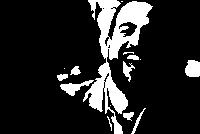 MR: All sorts of things. I’ve been finding out that my imagination with regard to my career is perhaps more limited than it should be, and I’ve had interesting conversations with people about creating a Broadway show, running a Broadway show, working on some sort of news comedy hybrid.
MR: All sorts of things. I’ve been finding out that my imagination with regard to my career is perhaps more limited than it should be, and I’ve had interesting conversations with people about creating a Broadway show, running a Broadway show, working on some sort of news comedy hybrid.
HK: Kind of like a comedic Inside Edition type thing.
MR: Yeah, maybe something like that. So many people have done so many different things with the daily comedy show now. When Dave came along, he was an innovator in so many ways and really just made fun of the preciousness of celebrity and television airtime and turned everything upside down, and we’ve seen in more recent years people like Jon Stewart or Stephen Colbert create something completely different.
Jon Stewart’s show was almost a stand-up comedy performance every night. You couldn’t swap somebody in and just give them the material and have it be the same show. And Stephen Colbert obviously is incredible, and so it makes one realize there’s a lot of creative possibility within this format, within this time slot, but there are also many other possibilities that are interesting to consider. I know that’s vague. The reason that answer is so vague is because I have no idea what I’m going to do.
HK: I mean you’re résumé is going to be so interesting. It’s like Bowdoin College, Late Show.
MR: Yeah, you know how they say you should keep your résumé to one page?
HK: Yeah.
MR: It’s no problem. I’ve got that covered.
HK: This was really fun. Thanks, man.
MR: No, thank you.
HK: I’m glad we did this.
MR: This was great. You are so good at asking all these follow up questions, I feel like I didn’t get to turn any of these questions around on you.
HK: They [had] me in the magazine a while ago already.
MR: You’re worried about being overexposed?
HK: I don’t want to ruin my chances of continually reappearing on campus. “We see him all the time.” I’m doing a gig there in April.
MR: Are you?
HK: I do it every couple of years. It’s been actually three or four years since the last one. I guess the last one didn’t go as well as I hoped so they’re like, “Let’s wait another three or four years.”
MR: Where do you [perform]?
HK: I always ask for Pickard. I always ask for it but I’ve never gotten it. I’ve asked for Pickard—is this on the record? Let’s put this on the record.
HK: I’ve asked for Pickard since I was a sophomore in college. I always get Kresge, always at Kresge.
MR: Really ?
HK: I would love to do Pickard. I don’t know what else I need to do to get into Pickard.
MR: You should’ve made it a condition of doing this: “I will do the interview if…”
HK: I want to be in the big theater. They put dance there every year and no disrespect to the Bowdoin Dance Department but I’ve been on Letterman.
MR: Right!
HK: I mean I don’t know if any of the Bowdoin dancers have appeared on Letterman.
MR: That’s a very good question. I think these are compelling points.
HK: Maybe the magazine can write a reply on behalf of Bowdoin College as to why I have not gotten Pickard yet. I think that would be fair and it could add another level to this.
Who was your president? Was it President Edwards when you were there?
MR: It was President Greason as I came in and then there was the transition to President Edwards.
HK: I came in right at the transition from Edwards to Mills.
HK: So I had the first semester as Edwards as they were starting to bring Barry Mills in and now I guess Barry Mills…
MR: He is leaving, yeah; and he’s been fantastic.
HK: Have you been back to the radio station since? I thought I heard it moved again.
MR: Yeah, I have. Oh, it moved again?
HK: I thought so because it was underneath Dudley Coe. That’s where it was when I was there. (Editor: WBOR is still located in the basement of Dudley Coe.)
MR: Have they moved it deeper underground?
HK: It would be amazing. I loved the fact that it was a little bunker.
HK: It felt secretive because you already felt like no one was listening to you.
MR: There was something ironic to me, though, about the fact that you had people blasting music right below where people were supposed to be convalescing.
HK: Yeah. That’s probably the thing I miss the most—other than friendship and professors and people—the actual structure that was WBOR. I miss that the most. There is no question.
MR: Do you remember the names of your shows?
HK: Not all of them.
MR: Did you do a double show at all with anybody?
HK: Kind of. I mean the first show I did was called “The Last Track” because I was the last show of the night on Tuesdays, 11:00 PM to 1:00 AM, and then I think I called one “The Inconvenient Parking” or something stupid based on a Modest Mouse song. I think I did one where my friend had the first hour and I had the next and we were pretending it was the same show but it wasn’t; it was completely different.
MR: Did you still have to read the, “This concludes the broadcast day for WBOR.”
HK: Do you actually have it memorized?
MR: I vaguely remember details from it.
HK: Did it have the phrase ‘coastal Maine’ in it?
MR: I think so.
HK: It was very specific.
MR: It had the station address, and that if you had any complaints you were supposed to contact the station.
HK: I was the worst music director. I never showed up for my office hours, [but] once when I [did], somebody came in to the radio station and stole the clock. I’m like, “How did this happen? I’ve been here the whole time.”
MR: A wall clock?
HK: Yes. Somebody had come down and stole it. I was so oblivious. I just like playing music and they gave me this position…
MR: What an odd thing to have happen.
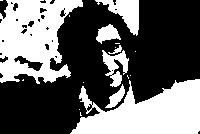 HK: Very bizarre, perfect in a way. I remember one time I went back to Bowdoin to do a show and I walked into WBOR. The door was open and I just wanted to see the station again and there was dead air and I’m like, “What? How is there dead air?” It was 3:00 in the afternoon on a Saturday. Somebody had skipped their show and instead of the getting a manager, the [prior DJ] just left. And so the next thing I know—I had graduated five years ago at this point— I’m covering the show. I put it back on and I’m like, “It’s a special edition of “The Last Track” with Hari Kondabolu. I guess I’m doing a show right now.” I did an hour-and-a-half, two-hour show.
HK: Very bizarre, perfect in a way. I remember one time I went back to Bowdoin to do a show and I walked into WBOR. The door was open and I just wanted to see the station again and there was dead air and I’m like, “What? How is there dead air?” It was 3:00 in the afternoon on a Saturday. Somebody had skipped their show and instead of the getting a manager, the [prior DJ] just left. And so the next thing I know—I had graduated five years ago at this point— I’m covering the show. I put it back on and I’m like, “It’s a special edition of “The Last Track” with Hari Kondabolu. I guess I’m doing a show right now.” I did an hour-and-a-half, two-hour show.
MR: You’re like an FCC superhero. “Wherever there is dead air I will be there!”
HK: I will be there with my Weezer Blue Album in hand to get us through the gap.
This was really fun. Thanks, man.
MR: No, thank you.
HK: Yeah, this was a fun conversation. I miss the school a little bit. It’s been a few years. I kind of want to see what it feels like because then they were [renovating] the art museum but I know they were building something else.
MR: I think there’s an arts building that’s now over off Coffin Street. (Editor: The Robert H. and Blythe Bickel Edwards Center for Art and Dance opened in August 2013 in the former Longfellow Elementary School.)
HK: Really?
MR: Yeah. I haven’t gotten to see it yet. I mean I saw it from the outside but they hadn’t opened it yet, so I’m looking forward to [seeing it]. I’m going back up there myself at the end of March. I’m on the Alumni Council.
HK: They asked me to do that. I said no. It’s just such a time commitment isn’t it?
MR: It’s twice a year. You go up for a three-day thing, but I have to say it’s really great.
HK: What do you like about it?
MR: One of the first things that I’ve been involved—we’re having our first event next week. One of the groups that I’ve sat in on came up with the notion of creating a lesbian/gay alumni [network].
HK: That didn’t exist already?
MR: No.
HK: Wow.
MR: Yeah, and it seems like such a great thing because Bowdoin’s really made great strides in the past decade with regard to gender and sexuality studies, plus the house there is really cool.
HK: Is that recent or is that in the last five to ten years?
MR: Relatively recent. They have an amazing director, [Kate Stern]. I went there and did a lunch talk and it was so great. It was like one of those things—I know it’s cliché—but I just got so much out of it. It was just such a cool thing to see. It was a weird experience going to—well it was just weird being gay in 1989, anyway, or 1991.
HK: Jeez, in Maine.
MR: In Maine but at Bowdoin especially, just because it was not the kind of place where people—I don’t know—it felt a little bit more sort of conformist I think. I think it feels less so now in many ways.
HK: Looking back, it’s like the campus I wish I had when I was there.
MR: Yeah. It’s funny. Now when I go back there I think in many ways it’s the school I wish I had but now I’d never get accepted.
HK: That’s right, yeah.
MR: It’s so selective now. The kids are so smart. So we’re having a student gathering with current students and alumni in New York City. It’s just going to be cocktails and a panel discussion with current students and alumni.
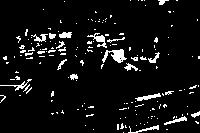
Hari Kondabolu ’04 and Matt Roberts ’93 on the set of the “The Late Show with David Letterman,” in the Ed Sullivan Theater, NYC, March 2015. Photo by Jeffrey Staab.
HK: When I was there, there was a student who became a really important figure as a queer person. They didn’t have the resources, so often I would hear people say, “Look, just call this person.” He was a student and he wasn’t paid to be a counselor or support staff but often resident life or whoever else would call Hal to speak to students who were having a rough time, and it was incredible because he was this magical person, but it was also like you’re supposed to have those resources for students. That’s a lot of pressure.
MR: Well, they definitely have that now. This house is fantastic and the director of it is fantastic. It’s LGBTIQA. They just did away with the letters and they’ve started calling it The Resource Center for Sexual and Gender Diversity, which is so smart because it was starting to get out of hand. Everybody was like, “No, no, I want a letter for this.”
HK: Each time I’ve gone back I’ve been incredibly impressed by the conversations I have. These are the conversations I wish I had when I was there, and it’s funny because like I was saying in the beginning, I always had this sense of being out of place there. But the friends I’ve made, the connections when I travel around the world—I mean I’ve seen Bowdoin alums in India, different places I’ve done shows and it’s like, “What are you doing here? How did you find me?” And they find you. You gravitate to each other because it’s such a specific experience.
MR: Yeah.
HK: And that I was on the cover of the magazine, that means something to me. That means something to my folks. There’s an embrace of my contributions for my time there and after. So it’s funny how I look at it now compared to my time there. I was ready to go. I wanted to go so badly and I knew—I remember Barry Mills had said during graduation that those were the best four years of your life, and I remember rolling my eyes so hard like, “It hasn’t started yet; things haven’t started yet.” And now I look back and those were incredibly formative, and the amount of love I’ve gotten has been extraordinary. People are really proud. That’s a nice feeling.
MR: I did have a great experience at Bowdoin even though, when you look at it on paper, maybe it shouldn’t have been. I didn’t date anyone, I didn’t go to parties, I was in the radio station all night on weekends.
But I have to say I wouldn’t change it now for anything. It’s almost even better as an alum, and the place does just get better and better as it grows, and there’s something so satisfying about still being a part of that community and being able to contribute and being able to make things better. I guess you start out thinking, “I want to make the world a better place than it was when I was here.” Then, at least if you’re me, you think, “Gosh, the world is really huge. Maybe if I just try to make Bowdoin a little bit better than it was when I was there this will be a good microcosm for me and maybe I can actually see some results.” I think Bowdoin really fosters that kind of spirit and it is true. It is a small community and you travel places in the world and people find out you’re from Bowdoin and they’re instantly your friends.
